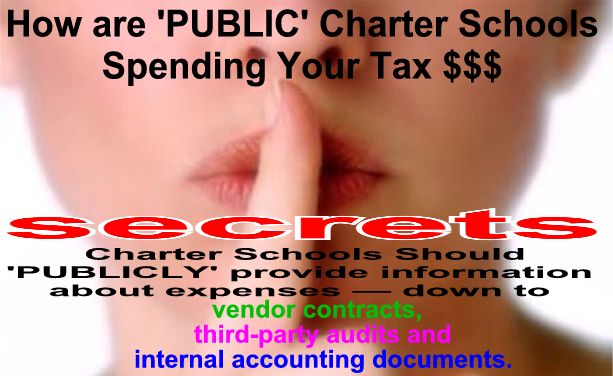The Fight to Bring Transparency to California’s Charter Schools

imee Roylance was thrilled when her son was accepted into Livermore Valley Charter School in 2010. The traditional public schools in their part of the Bay Area were cash-strapped and struggling, and the K-8 charter school, with a waiting list 300 kids long, was known to be an excellent alternative. Sure enough, her son thrived at Livermore Valley, thanks to its diverse programming and strong leadership of its well-liked principal. Eventually, Roylance enrolled her younger two children at Livermore Valley, too.
“The experience overall was very positive,” she says. But she didn’t know what was going on behind the scenes.
She first heard inklings of financial and management troubles at the school early this year. Curious, she used her real estate background to look up the tax status of the land parcels on which the school sat – and found the charter was months behind in payments. Soon, Roylance and other parents were packing board meetings of the Tri-Valley Learning Corporation, the nonprofit that operates the school, demanding answers that didn’t come. Board members, Roylance claims, refused to address their tax troubles, release budget information or explain how they were using public funds. The board limited public comment at its hearings, changed meeting locations and released only snippets of pertinent financial documents, says Roylance. Livermore Valley didn’t return a request for comment by press time, but the charter school’s troubles have continued to mount: Tri-Valley is now under investigation by the Alameda County District Attorney for fraud,mismanagement of its foreign exchange program andchild endangerment.
Roylance believes many of these problems could have been avoided if Livermore Valley and its operator were required to be more transparent. “I don’t think [management] would have been able to take advantage of the system,” she says. “If there was more transparency, the public would have known what was going on. We could have avoided a lot of the trauma we went through.”
Roylance isn’t alone in such beliefs. An alliance of teachers, community activists and state officials is advocating that California’s charter school industry – the largest in the country, with more than 1,200 charter schools statewide – be held to the same accountability standards as traditional public schools. It’s calling for the passage of Assembly Bill 709, which would require charter schools to follow open-records and open-meeting laws, and disclose how they use taxpayer funds, as well as to prohibit charter board members from profiting from their schools. Currently, that bill sits on the desk of Governor Jerry Brown, who launched two charter schools while mayor of Oakland and has a history of opposing new charter regulations. But maybe, hope activists, with scandals and public outcry mounting, California’s charter schools are ready to be held accountable.
As the charter movement spread across the country, for-profit enterprises saw the potential for tapping into the $620 billion the United States spends on elementary and secondary schools without the regulatory restrictions placed on traditional public schools.
As the charter movement spread across the country, for-profit enterprises saw the potential for tapping into the $620 billion the United States spends on elementary and secondary schools without the regulatory restrictions placed on traditional public schools.
When the first charter school law passed in Minnesota in 1991, the idea was that these independently run schools would boast increased inventiveness and accountability, since they’d be run by parents, teachers and community members who’d have the students’ best interests at heart. But as the charter movement spread across the country, for-profit enterprises saw the potential for tapping into the $620 billion the United States spends on elementary and secondary schools without the regulatory restrictions placed on traditional public schools.
“Charter schools were originally a union concept,” says Eric Heins, president of the California Teachers Association. “We’d create these laboratory schools, exempt from the usual restrictions — then if we see things work, we’d scale them up to the traditional system. But they have become co-opted by a for-profit industry and backed by this small cabal of billionaires.” (Disclosure: CTA is a financial supporter of this website.)
Since these charters are exempt from most school district laws, there’s nothing on the books compelling them to abide by California’s open-meeting and open-records rules. And these days, California is being singled out for lax oversight of its booming The Fight to Bring Transparency to California's Charter Schools - LA Progressive:


